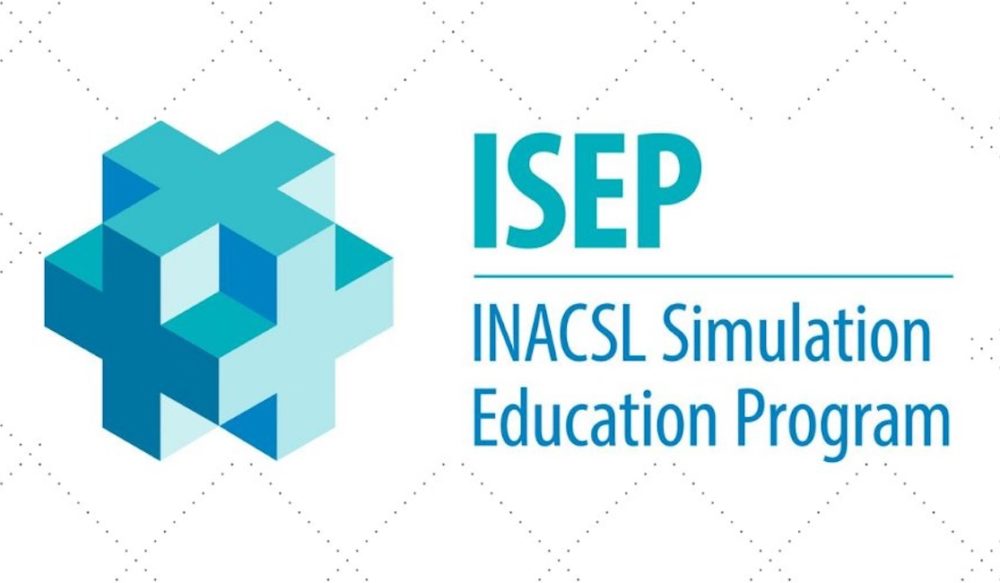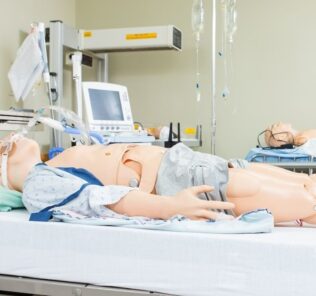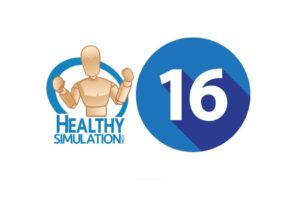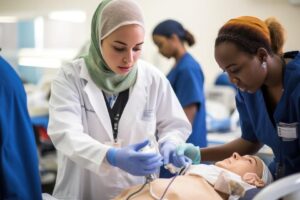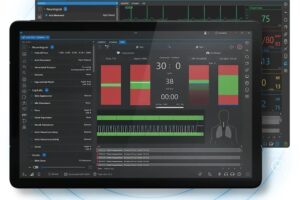Registration Open: INACSL Simulation Education Program
Healthcare simulation education programs are springing up around the world as the use of clinical simulation in educational environments continues to increase. Through these learning experiences, medical simulation learners are able to hone important skills they will need to best ensure patient safety and deter medical error. To bring just-in-time education and best practices to participants, the International Nursing Association for Clinical Simulation and Learning (INACSL) has developed the “INACSL Simulation Education Program” (ISEP). This particular program aligns with the vision, mission, and core values of INACSL in promoting evidence-based strategies across healthcare simulation.
Developed and facilitated by experts in the field, ISEP provides a pathway for novice and intermediate simulation educators, practitioners, and directors to learn and apply these evidence-based strategies in simulation. According to INACSL, advanced practitioners enrolled in the program will benefit from the refinement of skills and best practices in healthcare simulation-based education.
A comprehensive, online program, ISEP integrates concepts of clinical simulation and instructional design methodologies into practice with interactive, activity-based, online projects. The program consists of 12 courses, and each incorporates participant discussion boards and video sessions with facilitators related to specific course projects and assignments. Additionally, some courses require participants to work together virtually to complete group projects.
Sponsored Content:
One learning objective of this program is for participants to become able to integrate the Standards of Best Practice into curricula to advance the science of simulation. Upon completion of the program, they should also be able to demonstrate effective simulation design principles to facilitate learner-centered, simulation-based experiences, and generate evaluation strategies to determine the impact on patient, participant, and systems outcomes. Lastly, they will leave with the expectation that they must go on to participate in leadership and scholarship activities to advance the science of simulation.
Course Outline
- Course 1: Introduction to the Healthcare Simulation Standards of Best Practice
- Course 2: Scenario DesignCourse 3: Prebrief and Debrief
- Course 4: Fidelity and Realism
- Course 5: Assessment and Evaluation of Simulation Learning and Program Outcomes
- Course 6: Healthcare Education Using Simulation
- Course 7: Engaging and Developing Simulation Educators
- Course 8: Simulation Beyond Manikins: Virtual & Gaming
- Course 9: Simulation Operations (Sim Ops)
- Couse 10: The Use of Standardized Patients
- Course 11: Specialty Simulations
- Course 12: Putting It All Together and Moving Forward in Simulation
Cost for the self-paced component package program is $1,200 USD for INACSL members, and $1,500 USD for non-members. Each registration for the program is processed on a first-come-first-serve basis, and INACSL is offering only 40 spots for the entire cohort. Here is how to reserve a spot:
1. Log in to INACSL account
2. Access Center for Learning
3. Click on the ISEP tab at the top
4. Register for the May 2022 Cohort
Sponsored Content:
Upon completion of ISEP, participants will earn 112 continuing nursing education (CNE) credits. INACSL shares that this has been determined based on a credit pilot study conducted with participants in the program. The International Nursing Association for Clinical Simulation and Learning is accredited as a provider of continuing nursing continuing professional development by the American Nurses Credentialing Center’s Commission on Accreditation.
Additional INACSL Learning Opportunities
Best Practices Workshops: The Standards, Core Competencies and Best Practices in Healthcare Simulation Series is a partnership program of the Association of Standardized Patient Educators (ASPE), the Society for Simulation in Healthcare (SSH), and the International Nursing Association for Clinical Simulation and Learning (INACSL).
This workshop includes four interactive one-hour sessions held online via zoom in order to provide better access to this important educational content for simulation professionals from programs of all sizes. The program content is designed to help healthcare simulation educators improve the quality of their healthcare simulation programs and advance their professional development.
In addition, the workshop faculty will review the simulation standards and resources available to assist educators in advancing healthcare simulation in a changing regulatory environment. During this workshop participants will discuss the application of best practices in healthcare simulation, including the following:
- INACSL Standards of Best Practice: Simulation
- ASPE Standards of Best Practices using Standardized Patient Methodology
- SSH Accreditation Standards
- SSH Certification Requirements (CHSE, CHSE-A, CHSOS, CHSOS-A)
More About INACSL
The INACSL is the global leader in transforming practice to improve patient safety through excellence in healthcare simulation. INACSL is a community of practice for healthcare simulation where members can network with clinical simulation leaders, educators, researchers, and industry partners. INACSL also provides the “INACSL Standards of Best Practice: Simulation,” an evidence-based framework to guide simulation design, implementation, debriefing, evaluation, and research.
The “INACSL Standards of Best Practice: Simulation” were developed to advance the science of simulation, share best practices, and provide evidence-based guidelines for implementation and training. Professional integrity is demonstrated and upheld by all involved in healthcare simulation-based experiences and is a crucial component of creating sim labs that improve outcomes.
The INACSL “Standards of Best Practice: Simulation” provide a detailed process for evaluating and improving simulation operating procedures and delivery methods that every simulation team will benefit from. Adoption of the “INACSL Standards of Best Practice: Simulation” demonstrates a commitment to integrity, quality, and the implementation of rigorous evidence-based practices in healthcare education to improve patient care by complying with practice standards.
Learn More About INACSL’s ISEP Program
Lance Baily, BA, EMT-B, is the Founder & CEO of HealthySimulation.com, which he started while serving as the Director of the Nevada System of Higher Education’s Clinical Simulation Center of Las Vegas back in 2010. Lance is also the Founder and acting Advisor to the Board of SimGHOSTS.org, the world’s only non-profit organization dedicated to supporting professionals operating healthcare simulation technologies. His co-edited Book: “Comprehensive Healthcare Simulation: Operations, Technology, and Innovative Practice” is cited as a key source for professional certification in the industry. Lance’s background also includes serving as a Simulation Technology Specialist for the LA Community College District, EMS fire fighting, Hollywood movie production, rescue diving, and global travel. He and his wife Abigail Baily, PhD live in Las Vegas, Nevada with their two amazing daughters.
Sponsored Content:



